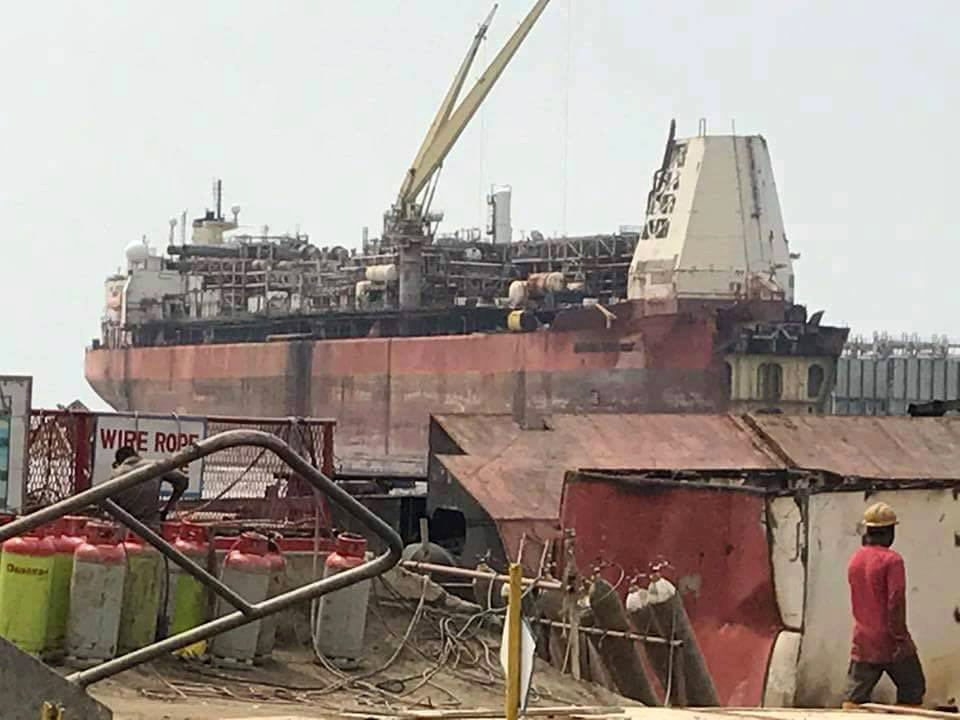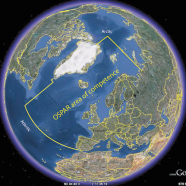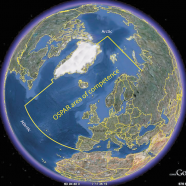Robin des Bois and the OSPAR Commission. Cork, Ireland. June 26-29, 2017
OSPAR is an International Cooperation Convention dedicated to the Protection of the Marine Environment of the North-East Atlantic, which came into effect in 1998. France, Belgium, Denmark, Germany, Finland, Iceland , Ireland, the Netherlands, Norway, Portugal, Spain, Sweden, the United Kingdom of Great Britain and Northern Ireland and the European Union are members, as well as Luxembourg and Switzerland due to the influence that the rivers flowing through them have on the Atlantic. Robin des Bois (Robin Hood) has had observer status at the OSPAR Commission since 2005.
Robin des Bois and the OSPAR Commission. Cork, Ireland. June 26-29, 2017
OSPAR is an International Cooperation Convention dedicated to the Protection of the Marine Environment of the North-East Atlantic, which came into effect in 1998. France, Belgium, Denmark, Germany, Finland, Iceland , Ireland, the Netherlands, Norway, Portugal, Spain, Sweden, the United Kingdom of Great Britain and Northern Ireland and the European Union are members, as well as Luxembourg and Switzerland due to the influence that the rivers flowing through them have on the Atlantic. Robin des Bois (Robin Hood) has had observer status at the OSPAR Commission since 2005.
Robin des Bois and the OSPAR Commission. Cork, Ireland. June 26-29, 2017
OSPAR is an International Cooperation Convention dedicated to the Protection of the Marine Environment of the North-East Atlantic, which came into effect in 1998. France, Belgium, Denmark, Germany, Finland, Iceland , Ireland, the Netherlands, Norway, Portugal, Spain, Sweden, the United Kingdom of Great Britain and Northern Ireland and the European Union are members, as well as Luxembourg and Switzerland due to the influence that the rivers flowing through them have on the Atlantic. Robin des Bois (Robin Hood) has had observer status at the OSPAR Commission since 2005.
Robin des Bois and the OSPAR Commission. Cork, Ireland. June 26-29, 2017
OSPAR is an International Cooperation Convention dedicated to the Protection of the Marine Environment of the North-East Atlantic, which came into effect in 1998. France, Belgium, Denmark, Germany, Finland, Iceland , Ireland, the Netherlands, Norway, Portugal, Spain, Sweden, the United Kingdom of Great Britain and Northern Ireland and the European Union are members, as well as Luxembourg and Switzerland due to the influence that the rivers flowing through them have on the Atlantic. Robin des Bois (Robin Hood) has had observer status at the OSPAR Commission since 2005.
MOX : Areva’s Slip-Up and heavy sleep
Areva, a modern day pirate, keeps up maritime expeditions carrying nuclear fuels and fissile materials. The Pacific Egret is a military ship painted in blue. She disconnected her AIS on the 13th of June, 2017. An AIS (Automatic Identification System) allows one to know the position and route of a ship and is essential for maritime safety. There are no surface ships of the French Navy that currently transport cargo and a weapon as formidable as that of The Pacific Egret. Several options are possible for the seagoing voyage from Cherbourg to Japan. Once used in the bygone days of Noriega for sensitive nuclear material, the Panama Canal is no more a viable option for political reasons. Crossing the South Atlantic, Indian Ocean, and South Pacific is now the most classic way to go. With the agreement of Vladimir Putin, the Arctic North-East passage off Siberia cannot be completely excluded as an option either.
Moxquitue
Next week, MOX fuel will be loaded in Cherbourg onto the Pacific Egret or onto the Pacific Heron with the destination of the Takahama nuclear plant in Japan. MOX contains 10% plutonium and 90% uranium.
This voyage of dangerous fissile materials across the worldwide oceans causes tension and poses risks all along the track. The point of the refuge port in case of damage or fire has yet to be solved. The ability of the modest ships from Pacific Nuclear Transport Ltd to resist cyclones, tsunamis, and North Korean missiles has not been demonstrated either.
Nuclear : Kafka in the EPR – N°1
The vessel confines nuclear fire. Flamanville’s EPR* vessel in the Manche department in Western France would be subject during its 60 years life time planned by EDF and AREVA to considerable thermal, hydraulic, mechanic, and neutronic stresses. The vessel does not have to be strong; it has to be indestructible.
“The nuclear safety demonstration excludes the breakage of the vessel because no reasonable provision to restrict consequences for the reactor management, for personnel, the population and environment can be defined ” (source: report from Monitoring Group “EPR Vessel” of HCTISN, Haut Comité pour la Transparence et l’Information sur la Sécurité Nucléaire, High Committee for Transparency and Information on Nuclear Safety).
Europe exports radioactive waste to Bangladesh
236 meters long. The North Sea Producer, prized possession of Maersk, the number one ship owner in the world, has served the petroleum industry in the North Sea well for 18 years.
This former tanker was launched in 1984 in Denmark under the name Dagmar Maersk and was converted 12 years later into a Floating Production Storage and Offloading (FPSO). It was stationed in the Mc Chulloch oil field north of Aberdeen. The North Sea Producer retired in 2015 on the banks of the Tees next to the shipbreaking site of Able UK in Hartlepool where the former French aircraft carrier Clemenceau was demolished, and from there left Europe under tow. Maersk chose Bangladesh for the end of its life. In the last 9 years, 161 workers have been killed on the beaches of Chittagong. Maersk was not impeded by these facts. What really counts is selling at the best price. The scrappers of Bangladesh offered more than $6 million US for the North Sea Producer.
Europe exports radioactive waste to Bangladesh
 May 2017, Chittagong. Suspended dismantlement of the North Sea Producer.
© Sajjad Chowdhury
May 2017, Chittagong. Suspended dismantlement of the North Sea Producer.
© Sajjad Chowdhury
As Robin des Bois published in its quarterly bulletin “Shipbreaking” #47, in its kilometres of pipes the North Sea Producer contains radium scales. Radium is naturally present in the underwater substratum, the exploitation of gas and oil concentrates the radium in the pipes and tanks. Radium scales are highly toxic through inhalation and contact. For example, during the maintenance and dismantlement of the Lacq gas field in France, Total Production produced more than 2000 tons of metal contaminated by Technologically Enhanced Naturally Occurring Radioactive Material. The official destination of this waste was the Soulaines storage center in Aube department under the responsibility of ANDRA, the National Agency for the Management of Radioactive Waste. Norway exploits a storage center for radioactive residuals from the petroleum offshore industry.












